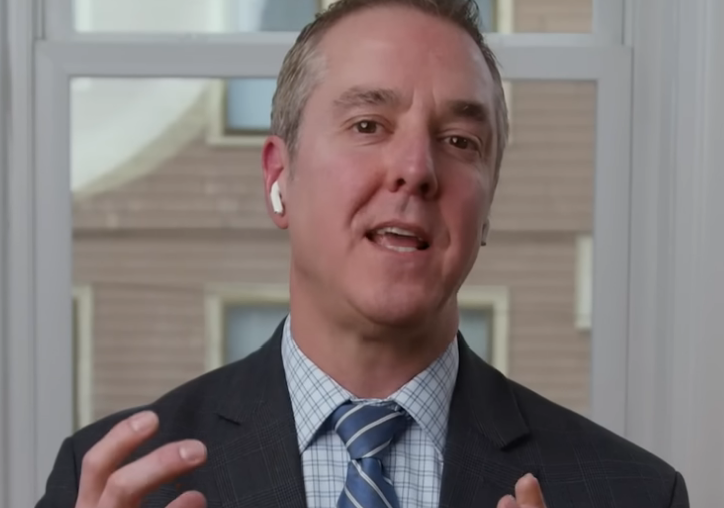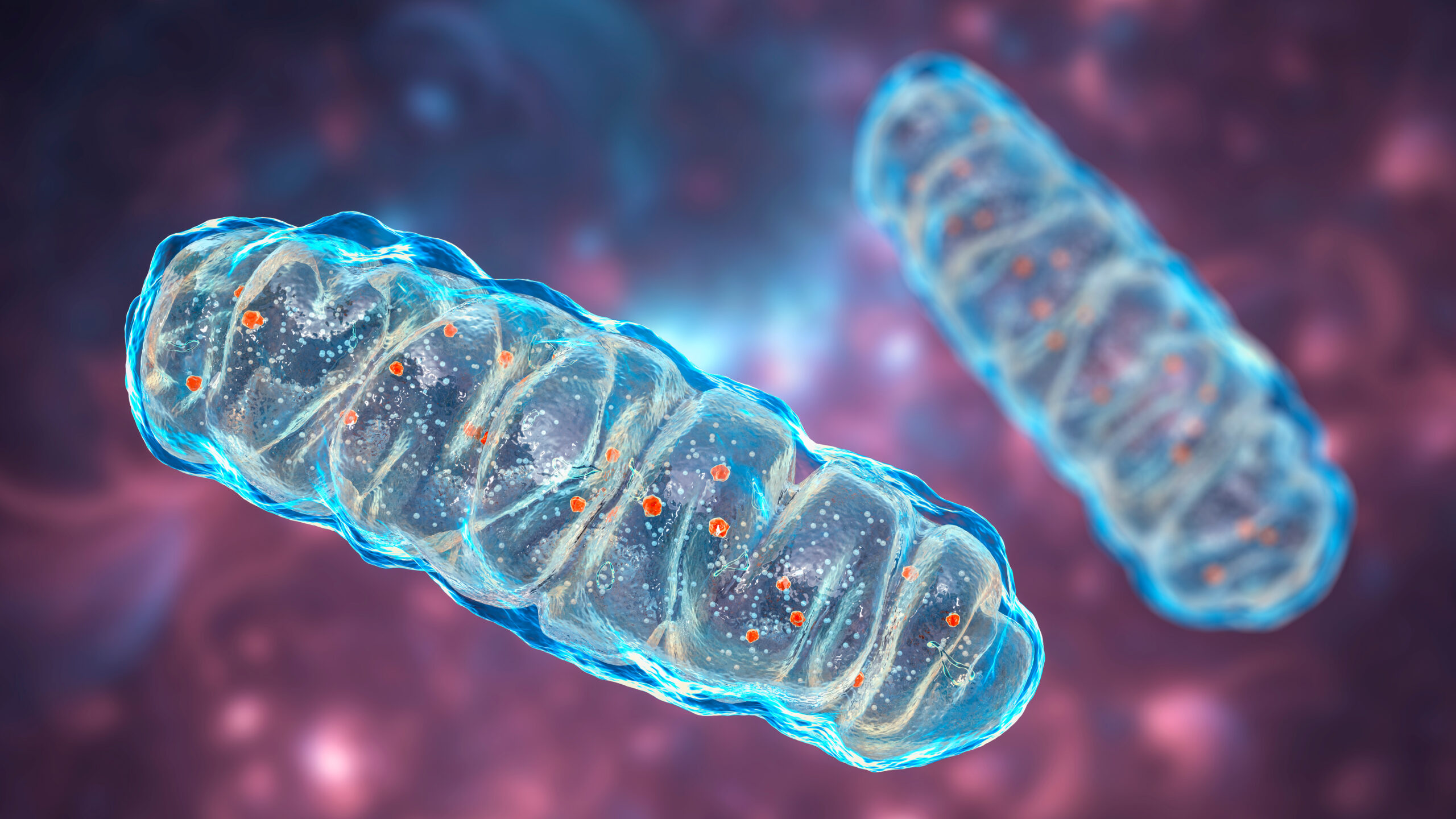
When you’re sick and tired of being sick and tired, you need answers, solutions, and information that leads you to take action to change your health, and your life. Maybe you’re suffering from unrelenting depression that medicines don’t help, and maybe you’ve gained weight – even exorbitant weight – that you feel powerless to lose. Maybe it has just happened, or maybe it’s a side effect of all the medicines you’ve tried for treatment. Just maybe, the weight gain has given rise to pre-diabetes, or Type 2 diabetes, and sometimes the more weight you gain, the more you want to eat. And that increased weight causes worse depression. And what if your depression symptoms have been accompanied by OCD symptoms, or hallucinations, and even delusions? Let’s talk about how mitochondria can help your brain heal.

Chris Palmer, M.D., author of the book Brain Energy, was recently interviewed on Jordan Peterson’s podcast. He had so many good things to say about conditions that include all these different symptoms… and a wonderful explanation for why.
Is Depression Always a Disorder?
First, he said, all humans get depressed, feel anxiety, humiliation, and shame. Those are normal emotions in specific circumstances, and they can help you make necessary changes to improve your life. Human emotions are not disorders — they’re part of being human. When that happens, it’s not a disorder.
But, there are so many ways you can suffer, and develop patterns that aren’t appropriate or adaptive adjustments to events in your life or your environment.
You can develop patterns as you try to adapt to events in your life that caused you hurt or broke your trust that aren’t so good for you. But those aren’t necessarily brain disorders, either.
Some people have actual brain disorders, where their brain is not functioning properly. They have anxiety for no reason, because cells are firing when they shouldn’t be. Or depression, because cells aren’t firing when they should be.
This can cause crippling OCD, persistent depression, mania, even hallucinations, and delusions… for NO reason.
Through the ages humanity has formed theories about the cause of symptoms like these. From demon possession to bile to dopamine and beyond. But none of these theories connect the dots for all of these conditions. Mitochondria connect those dots. And mitochondria can help your brain heal.
They’re the crux of a central theme that revolves around metabolism.
What’s the Role of Metabolism?

Understanding metabolism—and mitochondria—helps us better understand how risk factors for these conditions come together. It gives us clear direction for treatments we can put in place. And it shows us how changes in diet, exercise, hormones, and medications can be helpful or harmful. And how substance use can impact a condition and its treatment.
Someone who has vital elements missing in his life, like a rewarding job, significant and rewarding relationships, and a sense of purpose, can be depressed because the human brain is hard-wired to be depressed in the absence of those things. Its purpose is to push that person to develop the social connections to integrate him into a rewarding life.
Then, Dr. Palmer pointed out how pain provides a great comparison. When you have pain because of an injury or surgery, that’s pain for a good reason. It’s logical and easy to explain. Of course you have pain!
But when you have pain for no reason, that’s a disorder. Cells are firing for no valid reason. They’re malfunctioning.
By the same token, he stresses that when you’re depressed for obvious reasons, that’s not a disorder. But when you’re depressed – or have anxiety – for no good reason, it rises to the level of being a disorder.
And Mitochondria Can Help Your Brain Heal
There is a wide range of medical conditions that can cause the exact same symptoms of depression, like neurological disorders, Alzheimer’s disease, Huntington’s disease, Parkinson’s disease, hormone imbalances, like hypothyroidism, women’s hormones during menstrual periods, pregnancy, and menopause, low testosterone. Inflammatory conditions. A host of others.

And that makes us wonder… what is the connection between all of these diseases and conditions that could explain the same depression symptoms?
Dr. Palmer said that this is a really important clue to solving the puzzle!
What Causes Mental Disorders??
For all people suffering from mental illnesses—psychiatric conditions—around the world, how can we produce better treatments? He believes it’s by recognizing a common denominator, or a common thread. And it seems clear that what they all have in common is metabolism. And…more specifically, it’s these tiny things in our cells called mitochondria.
Schizoaffective Disorder and Ketogenic Diet
He told the story of a patient he’d had for 8 years. This man had schizoaffective disorder, with chronic hallucinations and delusions; he was overly suspicious, convinced everyone was out to get him, laughing at him, spying on him, and trying to hurt him. He’d tried 17 different medications — none had helped. He’d gained massive weight and asked Dr Palmer to help him lose it.

So Dr. Palmer put him on a ketogenic diet — to help him lose weight.
Within 2 weeks, he was losing weight. But Dr. Palmer noticed a powerful antidepressant effect taking place. He was flabbergasted. How could two weeks of food affect symptoms that had been there for years?
Then, came the shocking revelation. About 2 months after starting the ketogenic diet, he started spontaneously reporting that his hallucinations and delusions were beginning to go away.
That man went on to lose over 160 lbs and has kept it off for seven years now. He was amazingly able to do things he hadn’t been able to do since he was first diagnosed.
This man could go out in public without paranoia — he completed a certificate program, performed improv before a live audience (no joke!) and he started teaching karate. He was able to do things that had not only been impossible for him, they’d be impossible for just about anyone with his illness.

Dr. Palmer began using the diet with other patients, quietly. And took a deep dive into basic science and bodies of evidence from treating epilepsy, to other bodies of evidence, about bipolar disorder, depression, and schizophrenia.
Not a Fad Diet
The ketogenic diet is not a fad weight loss diet. It’s an evidence-based treatment that’s been used for more than 100 years for epilepsy. So Dr. Palmer thought that maybe that’s why this is changing this patient’s brain symptoms… because of the effect it has on epilepsy in the brain.
Maybe those same processes are reducing his psychotic symptoms. Could it be?
He studied the enormous body of evidence in the field of neurology regarding how the ketogenic diet stops seizures. There are changes in neurotransmitters, changes in the gut microbiome, decreases in inflammation…
But one thing stood out:
It improves how mitochondria function, which means:
IT IMPROVES BRAIN METABOLISM
The metabolic theory of brain disorders can explain to us why neurons might be overactive – or hyper-excitable — through neuroimaging studies, cell biology studies, and others that confirm this. We know that people with these brain conditions have hyper-excitable neurons. That there are parts of their brain that just start firing when they shouldn’t.
Not so different from a pain cell that fires when it shouldn’t.
So to understand why this happens, we can turn to the metabolic/mitochondrial theory to connect the dots with all the symptoms of these conditions. Mitochondria can help your brain heal.

It helps us understand why sleep deprivation can lead to psychosis, and why antidepressants can precipitant mania.
When we understand that the mitochondria is at the foundation of what occurs to create so many different psychiatric symptoms, it allows us to find treatments and solutions that may actually help people heal and recover.
To understand mitochondria better, we think of it like this: 90% of the food we eat ends up as fuel in the mitochondria. When mitochondria get fuel, they convert it into energy in the form of ATP, or they break it down to smaller molecules to create hormones, enzymes, new proteins, neurotransmitters, or cell membranes…. or mitochondria can convert that energy to make heat.
If you run a fever, they’re creating that. If you’re too cold, the mitochondria are underperforming.
The medical field that’s focused on obesity, the cardiovascular field, the Alzheimer’s field, the ageing and longevity field have all been fueling research over the last 20 years on the role of mitochondria that is now taking off by leaps and bounds. Let’s learn about just how mitochondria help your brain heal.
Mitochondria are Central to Just About Everything
They serve up the fuel that’s used to create, regulate, and release neurotransmitters like serotonin, norepinephrine, dopamine, GABA, and more. And those neurotransmitters impact mitochondrial function.

Mitochondria also help control the expression of genes from the nucleus, which is called epigenetics.
Mitochondria help turn inflammation both on and off.
We’ve known that cortisol, the hormone, is poorly and improperly regulated in people with brain disorders. Mitochondrial dysregulation is believed to be the cause of cortisol dysregulation. So how can we get mitochondria to help your brain heal?
Mitochondria are affected by our diet, our exercise, our drug and alcohol intake… but here’s the kicker.

Biological, Sociological, Psychological
Trauma and childhood adversity directly impact mitochondrial function and health. So by understanding and treating mitochondria, we can resolve the connections between the biological, sociological, and psychological risk factors that lead to brain disorders.
The ketogenic diet also mimics fasting. And fasting triggers a process called autophagy, to clean out faulty cells and cell parts to help the body restore itself. The ketogenic diet also cleans up and removes faulty mitochondria, which is called mitophagy. Hugely important repair processes for brain health and longevity. And when mitochondria are fueled by a ketogenic diet they themselves become larger, more productive… they multiply.
These are just a few of the ways that help mitochondria heal your brain cells. And your cells in the rest of your body, too.
Fasting-Mimicking Diet

In some people, especially with extremely difficult diagnoses, it is sometimes necessary under medical supervision, to intensify that fasting state.
The most intense approach is to ingest nothing except water for a limited period of time. A second level of intensity might be to trigger a fasting state in the body with a carnivore diet, meaning nothing but meat…or beef, specifically. (Nose to tail deep nutrition is important there.)
But in most cases, a properly-formulated, nutritious diet of very low carbohydrates, moderate servings of protein, and high fat, creates this therapeutic state of therapeutic nutritional ketosis. This is the treatment strategy we use in our Touchpoints 180™ program — with striking results. Our patients see proof day in and day out that mitochondria can help heal your brain. And that it can last. So do their families.
Are YOU sick and tired of being sick and tired?

If you struggle with a whole cluster of symptoms like Dr. Palmer and I have talked about here, and nothing you’ve tried has made a difference, call us.
See what the science of nutritional psychiatry can do to restore your joy… and your life.
We’re here to partner with you in your recovery to living a better life. We can show you how.

To the restoration of your best self,
